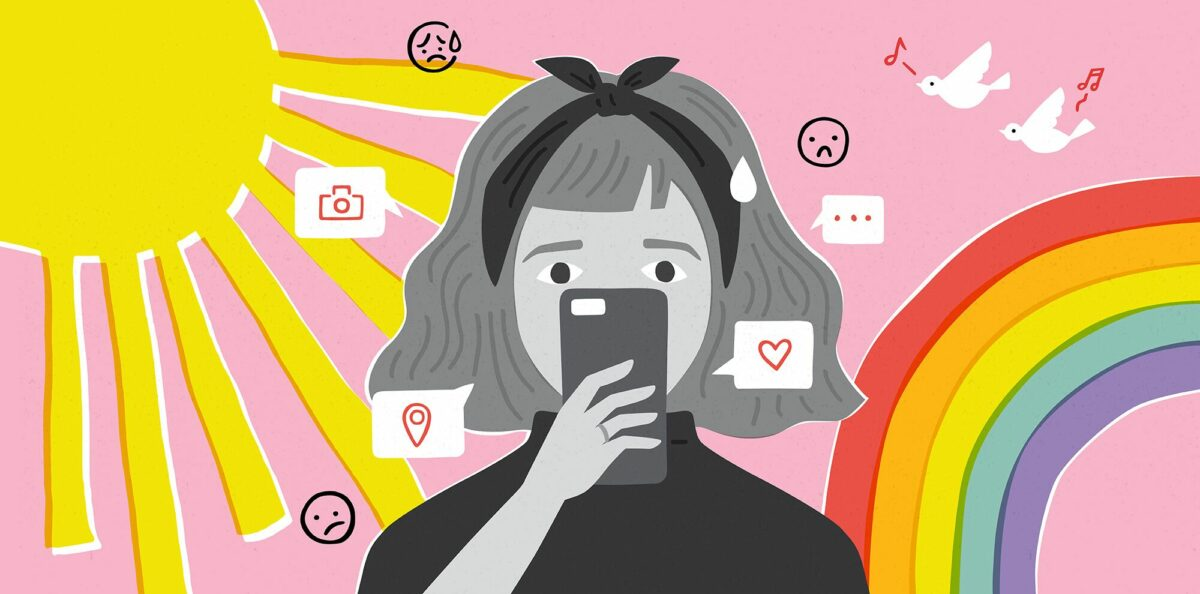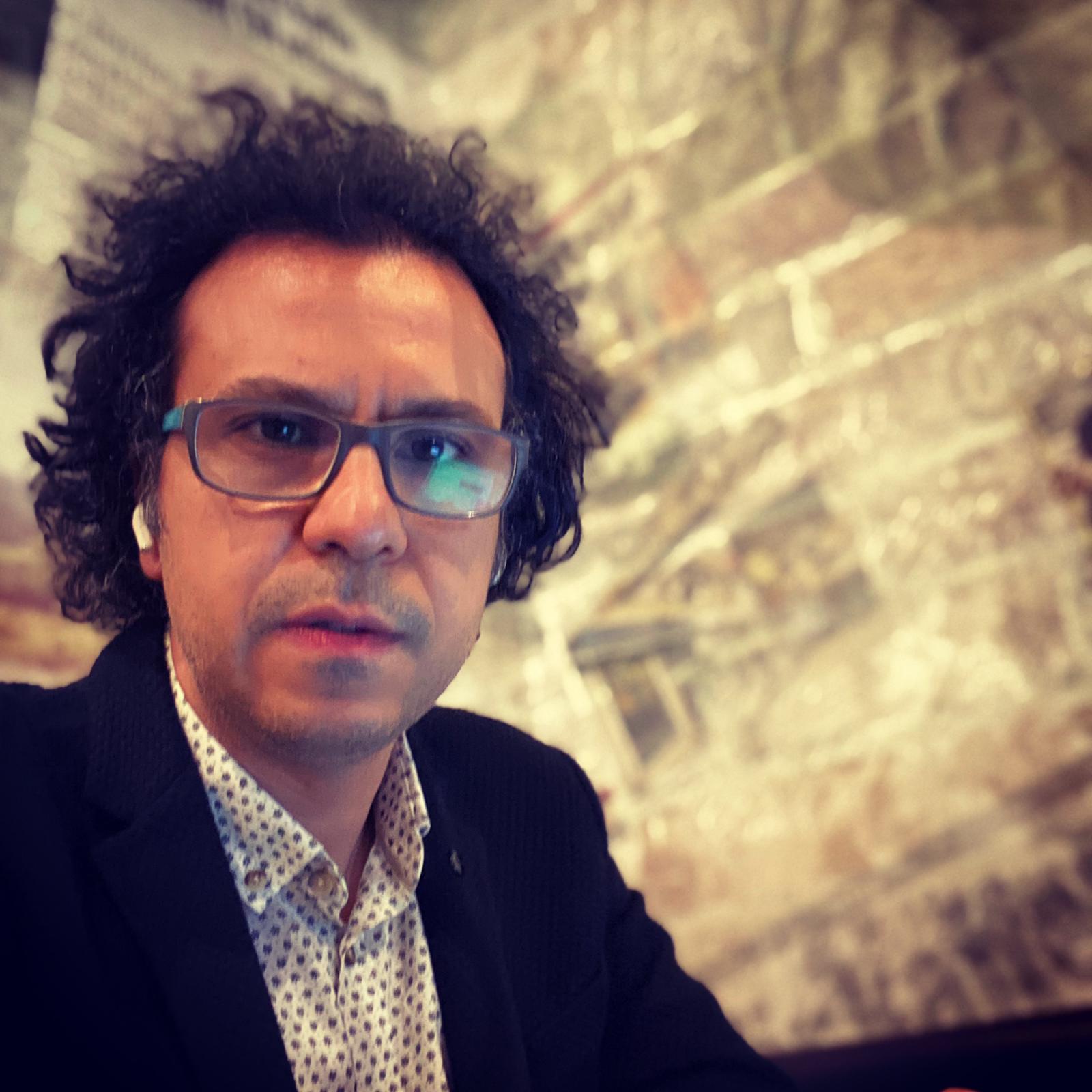The notion of echo chamber is particularly becoming apparent in our lives. It is our social bubble that we live, interact, communicate within.
Imagine, someone who belongs to different communities on social networks, such as families, school friends, interest groups, or activities, would almost certainly have felt as though each had been a parallel dimension. And each different social group knowledge and information coming from totally opposite spheres will clash with one another like the opposite one is living in a different world.
Let us now consider our socially isolated lives during the COVID-19 period, in which everybody tries to create a world at home. When we look at the fact that people spent more time and activity in closed areas in virtual communities to shield themselves from the virus, we can see that the impact that has appeared to be seen on groups interacting across virtual environments and is referred to as "echo chamber" in literature comes to the fore.
How social media echo chamber evolves?
With the uncontrolled social media mechanism and the applied filtering, individuals are confined to a small invisible room of users who share their views.
Following this mechanism to other people similar to the people you follow triggers the algorithm to suggest videos similar to the videos you watch. And of course, it is the real choice for the person to choose to live with only this information.
An example of this may be that those who believe that the earth is flat believed more and more by just watching these videos and forget the existence of those who believe in another view after one place. Of course, and the other way around applies to some others.
The Echo Chamber Effect occurred when knowledge conveyed to individuals unified around the same idea persists in the space constraints around that idea. The idea of the same view is strengthened and embraced without a doubt. Truth itself takes on a fantastic form. Opposition viewpoints are blocked, silenced, or unable to find a forum amid such an effect.
Echo Chamber effect in politics
The model's central assumption is "homophily," as described by sociologists. Individuals who share common social characteristics, political ideologies, or religious beliefs are more likely to associate.
When a global pandemic pushes us online, social media networks mediate our understanding of society. When algorithms provide us with politics that are close to our own, we interpret events through a biased lens. Many people were surprised even shocked when Donald Trump won the election in 2016, because those people’s social media feed succeeded at making them believe in Hilary Clinton was a genuine possibility. This transformation of forecast to a belief is a crucial issue proving how filter bubbles make us believe what we want to believe.
There are echo chambers in the entertainment industry as well. According to a 2019 media influence survey, even the entertainment habits of Democrats and Republicans are bitterly divided.
Democrats, on the whole, prefer animated comedy like The Simpsons and Family Guy to Republicans, who prefer shows that make them laugh and have protagonists they can relate to.
According to an Axios study of interests, various parts of the country were interested in HBO's "Succession" and USA's "WWE Raw" focused loosely on political leanings that appear to be related to certain viewpoints, such as liberals on the West Coast and conservative individuals in the South.
Echo chambers can be detrimental to society because they foster polarization. However, they also foster user engagement. They encourage tech businesses to sell more ads or charge higher rates for their ads, appealing from revenue management.
What is the difference between epistemic bubble and echo chamber?
According to the article published in Cambridge core, we also consider the epistemic bubble term while understanding the echo chamber concept. An epistemic bubble is a social epistemological system in which other important voices have been mistakenly left out. A social epistemological system in which other important voices have been deliberately removed and dismissed is known as an echo chamber. Epistemic bubble participants are not exposed to useful facts and claims.
On the other hand, echo chamber participants have been taught to mistrust out all other sources. Other voices are not heard in epistemic bubbles, while other opinions are deliberately suppressed in echo chambers. Consider climate change deniers here. They are well aware of all of the opposing points. They often list all of the traditional reasons for climate change before rejecting them. Many of the traditional climate change denial claims include allegations that evil powers have tainted scientific institutions and the mass media.
In this situation, we can think of hate speeches on Twitter and Reddit, which are ostensibly set up for the sake of freedom of speech. But with trend topics and other reinforcement mechanisms such as likes, upvotes, certain opinion bubbles may smash other groups. Since epistemology can work with facts and also can be debunked with rational thought, echo chambers are good at creating their own data, facts, truth, etc. and harder to breakthrough.
How to break the circle of Echo Chamber?
By excluding alternative viewpoints, we may build virtual clichés and strengthen our stereotypes by removing materials that no longer fit our current interests. Internet users seek out experiences with like-minded people who share their beliefs. As a result, confidence in the rationality of people who hold different beliefs than them is eroding.
We need to stay ourselves away from the idea that everybody thinks the same way.
It is necessary to abandon the belief that we are always right and know the best. Even from reputable sources, we must always double-check facts. Before making a decision, we must consider a wide range of viewpoints and step away from the assumption that everyone should behave in the same way as we do.
It is important to remember that various points of view are valued.
We can also engage with people who hold opposing viewpoints. We could not say a lot of things face to face. But with social media, offensive comments and hate speech is on the rise. It is necessary to step away from the polarized notions of 'them' and 'us,' as well as the presumption that everyone thinks the same way.
While there is no simple and effective way to eliminate echo chambers, a few hints will make it work.
Make it a habit to check various news outlets to ensure you are getting accurate and full information. These can be different news sites, newspapers, interviews, or different social media accounts.
Interact with people from various backgrounds and be sure to explore new opinions while not giving up on data, wisdom, and empathy.
It is beneficial to keep in mind that it does not mean it is because you want something to be real. Pushing the other possibilities away from you will not change how life works out anyway.
Continue to follow people on social media even you are not close friends
Unfollowing people you do not agree with on the Internet is easy, and you can do so without actually unfollowing them. However, if you have some of these not-quite friends on your list, Facebook's algorithm, for instance, would be more likely to bring in a wider variety of posts and notifications so that the algorithm will dynamically shuffle your feed for you. Simply put, click on some links which are not exactly your cup of tea.
Be aware of your prejudice
Realize the echo chamber as the first step toward removing it. If you pay attention, you will be more inclined to look for the constructed sameness and methods to prevent it. Just control yourself if your mood is changing and you are clinging to emotions rather than rational statements when you are forming your opinion.
Switch your feed settings to prioritize recency over customization.
Both Facebook and Twitter enable customers to see the most recent shares first, but the option is hard to find and frequently goes back to the default mode. The popularity algorithm causes the popular opinion to become more popular, so if you change it to recent posts, you can follow all the things posted recently and from several different accounts.
Concluding Thoughts
The echo chamber on social media is a relatively recent phenomenon in our lives. Different versions, such as confirmation bias or the epistemic bubble, were present in our lives with various media resources. It is all a part of our lives. Within their respective mediums, cable and print media continue to form similar ideas.
It is important to determine what to do as individuals in this situation. Do we care enough to step out of our comfort zone and explore the people who live in the virtually marginalized dimension of our Instagram or Twitter?
Think periodically muting people whose profiles share your viewpoints in order to make space for the rest of the community. Enable yourself to let go of prejudices and follow prestigious publications across the political landscape, as well as broadening your influencer and celebrity preferences, if you have any.














